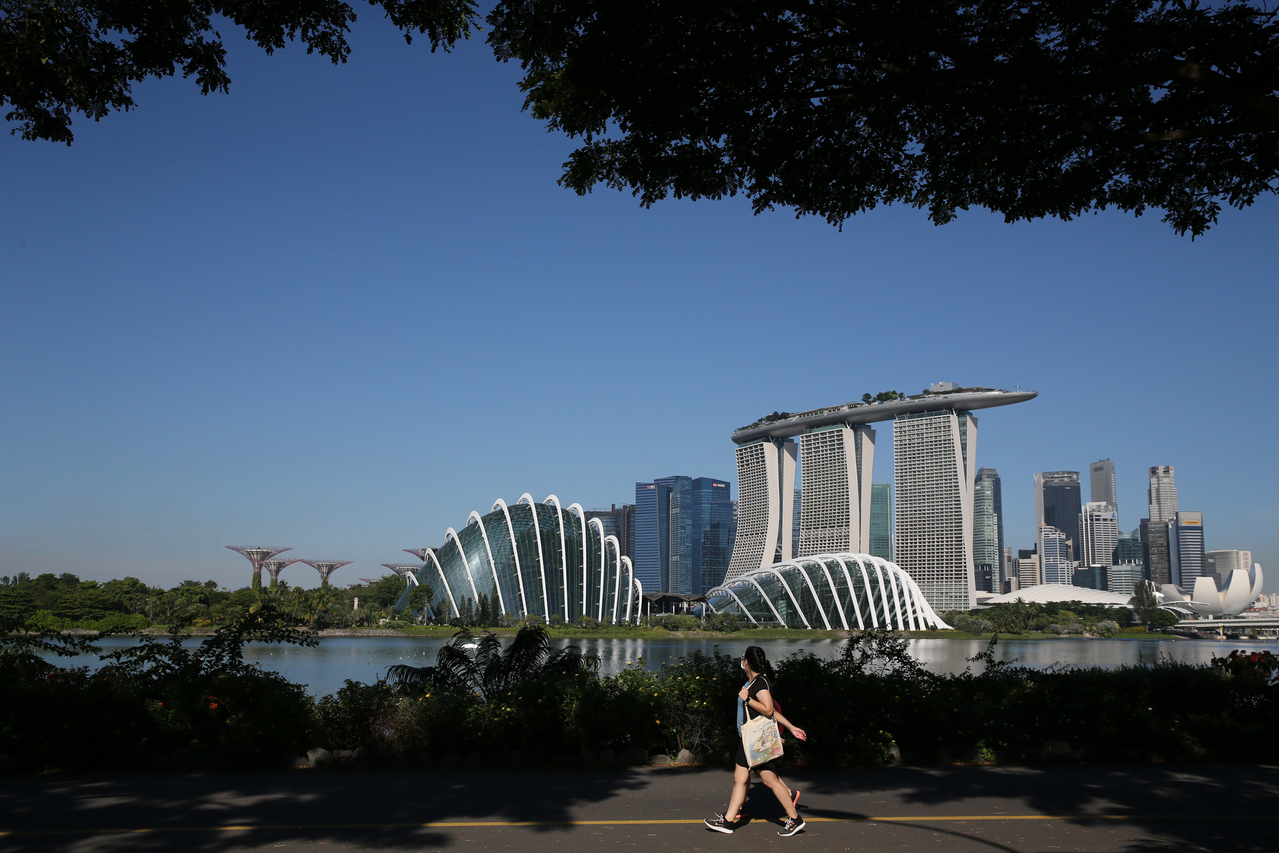Singapore companies’ green efforts gain traction but challenges remain: Survey
Sign up now: Get ST's newsletters delivered to your inbox

The survey found that 76 per cent of business leaders support efforts to expand the green economy.
PHOTO: ST FILE
SINGAPORE - A survey of 500 business and sustainability leaders reveals that Singapore's green efforts - which came into focus in the recent Budget 2022 - are gaining traction.
In this first edition of the Singapore Green Pulse Survey conducted by Schneider Electric, it found that 76 per cent of business leaders support efforts to expand the green economy.
Close to eight in 10 (78 per cent) are optimistic that local businesses can directly benefit from this growth.
To ride on this development, seven in 10 business leaders plan to create green jobs over the next year or so.
France-headquartered Schneider Electric is an energy management and automation company that provides solutions to improve energy efficiency.
The survey, which polled respondents across various sectors, was done in March after Budget 2022, and serves as the most recent pulse check on the green measures announced.
The carbon tax will be raised from $5 per tonne to $50 to $80 per tonne by 2030, while the country has pledged to achieve net-zero emissions by around mid-2050.
Mr Kim Yoon Young, cluster president for Singapore, Malaysia and Brunei at Schneider Electric, said companies are already aware of green issues but are now stepping up efforts to address them.
"We can see that they start to have a plan or start to have some actions," he added.
Of the 500 respondents, close to half, or 43 per cent, are small and medium-sized enterprises (SMEs).
Mr Kim said there are practical reasons for SMEs to be more involved in green initiatives. Many are suppliers to big companies which want to burnish their green credentials. If the SMEs want to maintain business ties, they will have to think about "greening" their operations.
For many SMEs, this would present another hurdle, on top of having to grapple with a talent crunch, as well as rising wage and operation costs.
Mr Kim added that SMEs "have a little bit less clarity than big corporations on what to do and how to (go green)".
Financing remains a challenge as well.
Tai Hing, which recycles waste paper, metals and plastics, told The Straits Times that it has an opportunity to collaborate with an Australian firm to turn waste into energy.
However, it lacks the capital for the project, and has been trying to find out where it can get funding support.
"We don't know what (funding) can be applied for, or what cannot be applied for. So we are still trying to work on it. We have been sending e-mails to Enterprise Singapore," Ms Jacqueline Lim, second-generation owner of Tai Hing, added.
Enterprise Singapore (ESG) is the government agency tasked with helping companies grow, innovate and go overseas.
Another business owner, Ms Lynn Tan, said she used her own money to fund her sustainable hair care venture The Powder Shampoo. "There is a lack of support because there is no prior track record, and too much red tape and processes to go through," she added, noting that private fund raising is a full-time job which she doesn't have time for.
ESG can support these companies, with its Enterprise Financing Scheme - Green (EFS-Green) providing green financing for companies that develop technologies and solutions to reduce waste, resource use or greenhouse gas emissions.
ESG will co-share 70 per cent of the risk with partner financial institutions.
For some of these SMEs, getting people to know about their business is also a challenge. Tai Hing's Ms Lim said a lot of people still do not know what can and cannot be recycled.
Some people have reservations about the green drive too, ST found out.
Mr Derrik Ling, 43, a sales manager, wonders whether building a more sustainable environment will impose costs on consumers.
Mr Wong Yuan Hao, 31, a freelance researcher, said he is wary of companies which claim to do things that are good for the world because their actions could be worse for sustainability or disadvantage certain communities.
Going green may be a challenge, but Schneider's Mr Kim said: "With the challenge, comes opportunity."
He added: "This green economy is generating lot of new green employment. This green economy is also bringing a lot of companies and a lot of entrepreneurs into this market."


